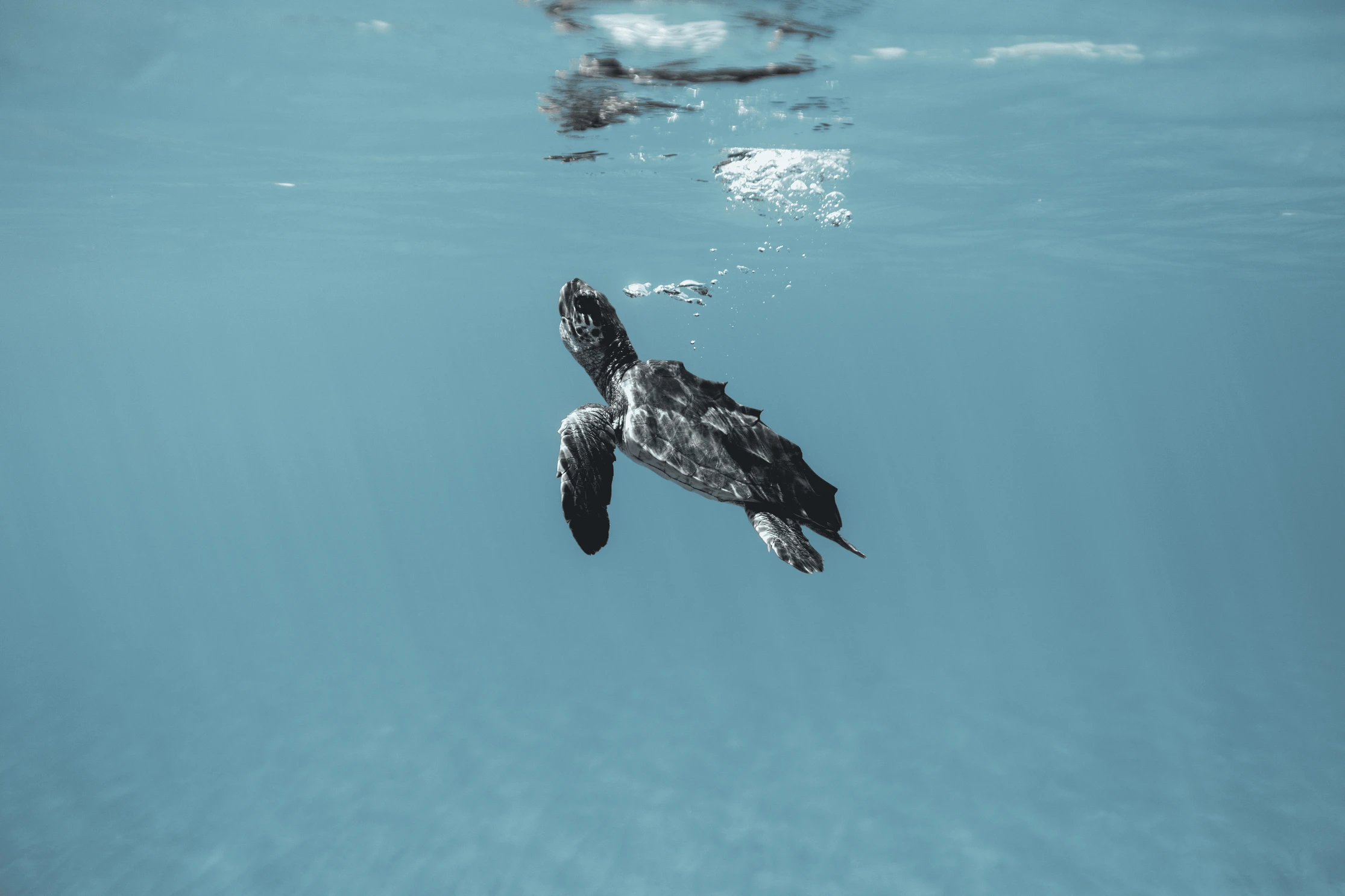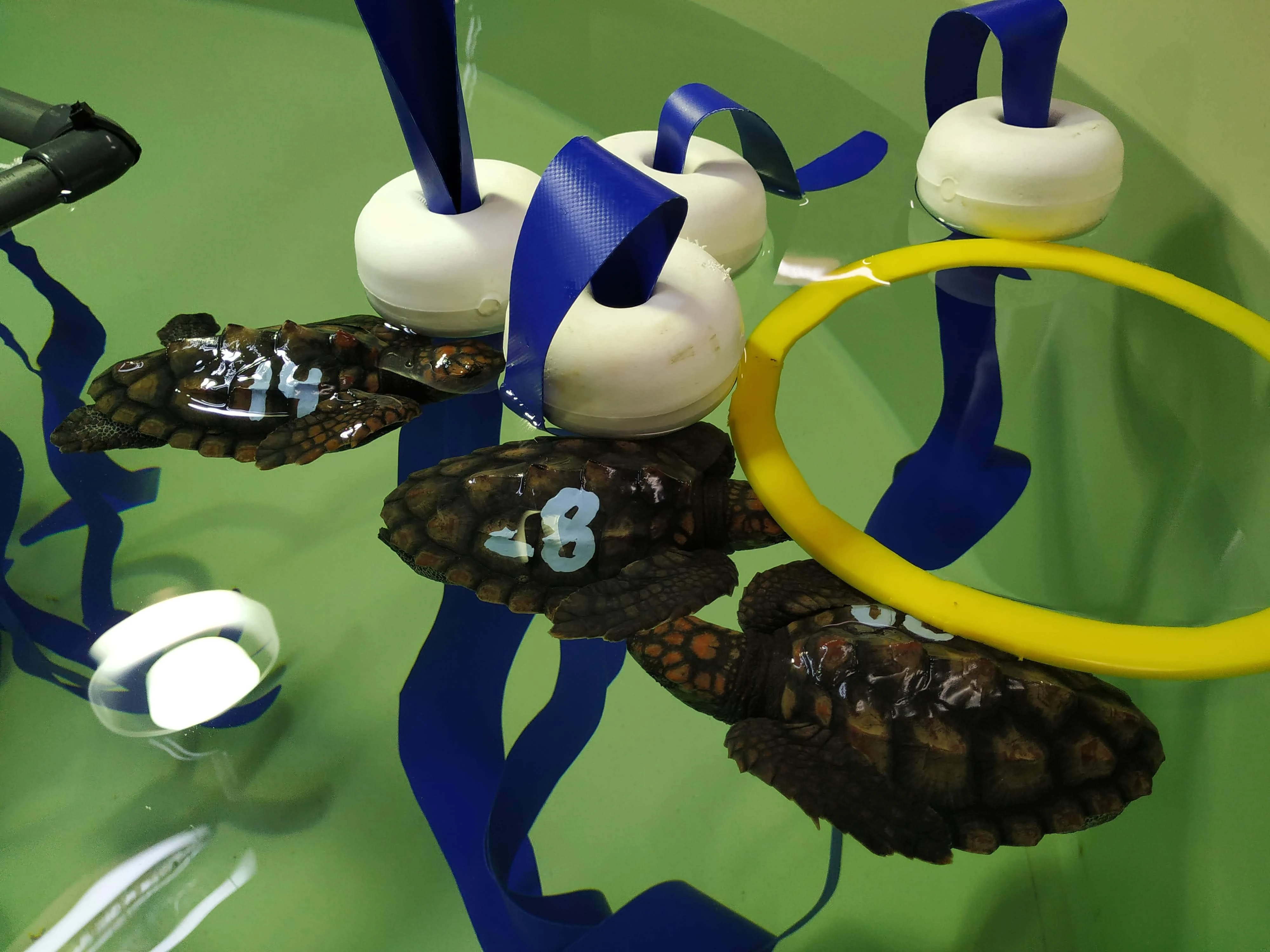-
Who we are?
Who we are?
-
Projects
-
Recovery centre
Recovery centre
- Collaborate
- News
The loggerhead turtle (Caretta caretta) is the most common and abundant of the seven species of sea turtles found in the Mediterranean. However, this has not prevented it from becoming an endangered species and listed as vulnerable by the IUCN (International Union for Conservation of Nature).
Despite being the most abundant marine turtle in Mediterranean waters, traditionally, this species only nests in the eastern Mediterranean basin, mainly along the coasts of Cyprus, Greece, and Turkey. In Spain, nesting was considered occasional until 2014, when the number increased significantly. Scientists believe this is a result of rising temperatures caused by climate change.
The animals that complete the Head Starting programme — those that reach the appropriate size and are in sufficiently good condition to be released — are returned to the sea, their natural habitat. It will take between 15 and 30 years for these animals to reach sexual maturity and in the case of females, to see if they return to our coasts, this time to nest.

Temperature is a critical environmental factor for the loggerhead turtle. It affects not only the distribution of adults but is also a key factor in determining the sex of the hatchlings: at temperatures below 29ºC, most of the hatchlings are male, while above this temperature, most are female. As a result, in traditional nesting colonies, more females are born than males. Colonising higher latitudes, such as those along our coasts, allows for a more balanced sex ratio, which is crucial for maintaining the species.
Head Starting is an ex situ conservation strategy, involving the controlled breeding of hatchlings over a period of several months. Mortality in the sea during the first year is extremely high, with estimates suggesting that only 1 out of every 1,000 turtles survive. This project aims to reduce the high mortality rates of sea turtle hatchlings during their first year of life. In the Balearic Islands, the project is managed by the Consortium for the Recovery of Wildlife in the Balearic Islands (COFIB by its Spanish initials), an organisation under the Species Protection Service of the Balearic Islands' Regional Ministry of the Environment and Territory. Since 2019, when the first nest was recorded in the Balearic Islands, the Palma Aquarium Foundation has been collaborating actively with these organisations to assist with sea turtle nesting events and Head Starting projects in the Balearic Islands.

 Collaborate
Collaborate